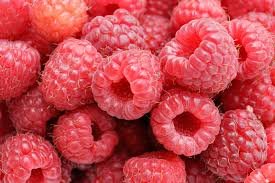Raspberries
Antioxidant rich foods

Raspberries
One of the most fascinating new areas of raspberry research involves the potential for raspberries to improve management of obesity. Although this research is in its early stages, scientists now know that metabolism in our fat cells can be increased by phytonutrients found in raspberries, especially rheosmin (also called raspberry ketone). By increasing enzyme activity, oxygen consumption, and heat production in certain types of fat cells, raspberry phytonutrients like rheosmin may be able to decrease risk of obesity as well as risk of fatty liver. In addition to these benefits, rheosmin can decrease activity of a fat-digesting enzyme released by our pancreas called pancreatic lipase. This decrease in enzyme activity may result in less digestion and absorption of fat. Recent research on organic raspberries has now shown organic raspberries to be significantly higher in total antioxidant capacity than non-organic raspberries. Raspberries in the study were grown on farms in Maryland that had been previously certified as organic by the U.S. Department of Agriculture. A series of tests involving free radical scavenging all provided the same results: organic raspberries outperformed their non-organic counterparts in terms of their antioxidant activity. This greater antioxidant capacity was associated with the greater levels of total phenols and total anthocyanins found in organic versus non-organic raspberries. While there are many good reasons to purchase organic versus non-organic foods of all kinds, this study makes it clear that these reasons specifically hold true for raspberries in a profound way.
 Test your English Language
Test your English Language  Celebration of Nag Panchami
Celebration of Nag Panchami Cinderella
Cinderella Chinese Embroidery
Chinese Embroidery Chinese New Year
Chinese New Year




